Mötley Crüe ruled the metal scene in the late ‘80s, going on to sell over 100 million records. However, by the time Sebastian Stan was the right age to appreciate the glam band, the metal heyday had passed. “Unfortunately, I didn’t really know Mötley Crüe when I was growing up,” Stan says, “because when I was in high school, it was already a grunge world.”
But that didn’t stop the Romanian-born actor from discovering the band later, telling SPIN, “I personally gravitate towards the ’80s.” So, despite not growing up on the iconic group, he eventually came to love them. Eventually becoming intimately familiar with one of the band members by playing him on TV.
Stan, 39, is currently garnering praise for his portrayal of Crüe drummer Tommy Lee in the Hulu drama Pam and Tommy, a fictionalized retelling of the stolen sex tape that became a cultural touchstone — and a punchline, despite the fact that it was a criminal invasion of privacy. The early episodes introduce the cocky musician as he meets and falls immediately in love (didn’t we all?) with Baywatch starlet Pamela Anderson (played by an incandescent Lily James). The later episodes delve deep into how poorly the situation was handled legally, culturally, and personally by the world at large.
On March 4, Stan stars in another Hulu original, the comedy thriller Fresh as the new boyfriend of a young woman (Daisy Edgar-Jones) navigating the horror that is the modern dating scene, which critics have hailed as a scathing critique on “toxic male sexuality and attitudes to women.” Thematically, the film complements the message of Pam and Tommy, with both projects examining gender dynamics in pop culture.
[embedded content][embedded content]
And then there’s Stan’s ongoing super cool role as super-soldier Bucky Barnes in the Marvel Cinematic Universe, most recently in the Disney+ series The Falcon and the Winter Soldier. While no future plans for that series have been announced, Stan, all cagey, tells SPIN he won’t rule out another turn in the MCU. Read on for more about how he prepared for his role as Tommy Lee, his favorite karaoke songs, ’90s fashion and if we’ll see him again busting heads alongside Sam Wilson.
SPIN: How naturally did the Tommy Lee character come to you?
Sebastian Stan: Not very naturally – I don’t have a tattoo on my body, I’ve never played the drums before; I don’t play any instruments. I sing karaoke for fun, but I have nothing to really relate to. It was going to be a massive journey of research that I was about to embark on.
What is your karaoke song?
Oh my God, I have so many. There’s great Elvis songs, Bon Jovi, Guns N’ Roses. I’ve definitely thrown in some Mötley Crüe. And Billy Joel – very, very important.
So you’re a classics karaoke guy.
I stick to the ones that have a lot of heart, all right? “New York State of Mind,” “Just the Way You Are.”
Back to the show: Physically, this was quite a transformation for you, and I imagine the tattoos and the nipple rings take a long time to apply.
Oh yeah, I forgot to say I don’t have nipple rings.
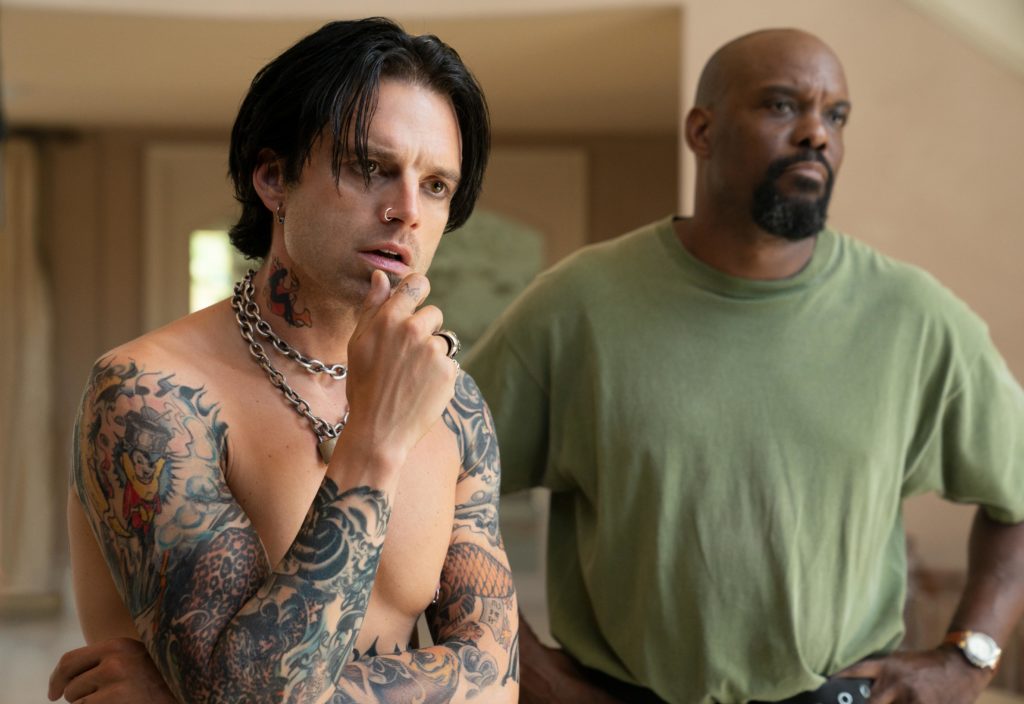
You are shirtless constantly in the show, showing off all the tattoos. How long did that transformation take?
It was about two and a half hours of makeup and contacts every day. There were two different makeup artists that were — sorry for the lack of a better word — double-teaming me. There was one that would take the left arm and then the other one, the right. That process would take about two hours. The tattoos would last about three days, even though they would need to be reapplied here and there.
Your version of Tommy Lee reminded me of so many boys I grew up with in the ’90s. That was the kind of masculinity that they aspired to, or at least emulated.
High school for me, and maybe because I wasn’t born here, was kind of traumatic in the sense that I needed to fit in. So I was always looking for alliances I could make left and right.
But do you remember the Jncos?
Oh yeah.
They’re the jeans the skaters would have and then the hats that they would be wearing or the baggy T-shirts. Then I went through a phase of cargo pants and Aeropostale vests. I had a gold chain I would wear outside of my T-shirt. There were a lot of looks in the ’90s.
In a lot of your interviews about Pam and Tommy, you’ve talked a lot about the animatronic penis and nipple rings. It’s really interesting to look at the questions you’ve gotten through the lens of what Pamela experiences in the later episodes — this extremely invasive thing happened to her, and people are cracking jokes about it and constantly asking her about it. Have you thought about those more invasive questions through the lens of what she faced?
I think it shows us something very interesting and revealing about the media: the clickbait mentality that we live in hasn’t really changed much. I think that’s one of the things that I felt was really smart about the show. It starts off a certain way and takes you on this journey and the projections that people threw on those earlier episodes, particularly [the talking penis] scene — the fact that it was talked to the extent that it was and the amount of press that it got as opposed to some of the heavier themes in the show certainly to me felt very revealing.
We sometimes discard the humanistic aspects of certain stories, and we gravitate towards something that, well, sells. That’s what’s sad to me about the show and certainly something that says a lot about the times, that the beginning of the internet and where we’ve arrived today. To some extent, a lot hasn’t changed.
At the core of the show, there were two people who fell madly in love who had just gotten together. She was trying to be a mom. She wanted to have a family. She wanted to also have another path for herself. Every time she tried to take that path, there was another closed door in her face. Certainly, I think in the later episodes you really do see what the impact of this whole thing was, and that there should be a shift in attention to those particular details.
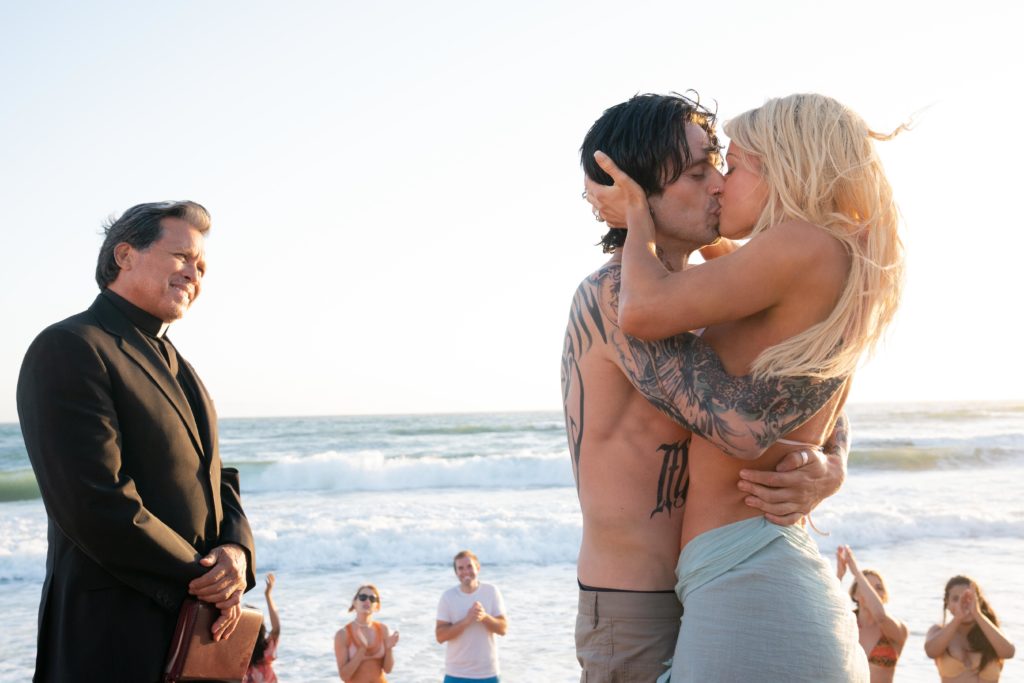
What is something that surprised you about Tommy Lee that you learned in the course of making the show?
The way he grew up, which we don’t really explore in the show. Tommy came after his mother had, I believe, at least four or maybe five miscarriages. His mother was Greek and his father had a background in the army. His parents had married in this span of four days, very similar to how he and Pamela got married. His father went to Greece, met his mom, they got married. Then she came to the U.S. So for the beginning of his childhood formative years, his mother actually didn’t speak English. There’s something there to be said about your own mom not being able to communicate to you right away in those formative years. Actually, his parents used to communicate through pictures. This is all on YouTube. He talks about it extensively. I think that heavily informed him discovering the drums because it came from a place of wanting to be heard.
How good did you get at drumming while filming?
I will always feel like not enough was done on my part, only because it was three months to start drumming and [Tommy Lee] is labeled as one of the greatest drummers in the world. So how was I ever going to get to that in that amount of time? But I had a great teacher, Isaac Carpenter. I started drumming when I was doing a different project in Canada in January [2021]. I would go shoot that project and go learn drums on the weekend. Then as soon as I got to L.A. in March, we had about a month before we started, so I jumped into it.
I kept telling them to punt those scenes as late as possible so that I could have as much time as possible, but there’s something very cathartic to it. It really helped me understand his energy. He has a very specific feeling to the way he’s drawn to music and the way music is seemingly viscerally experienced in his body. The drums are a very primal instrument, they’re the heartbeat of a band. If the drummer’s off, the whole thing falls apart.
Your new movie Fresh has also been described as a critique on toxic male sexuality and attitudes to women, which seems to thematically fit with Pam and Tommy as well. Was that conscious? Do you look for projects with a deeper message, or is it just coincidental?
Since I’ve gotten older, I feel much more conscious of the type of project that I want to be involved in simply because of how energy- and time-consuming it is. You give at least six months of your life to this thing and often park your own life to the side so that you can commit to it. So it better be something that you really want to be involved with, but it’s more complex than that. It’s who else is involved, it’s what is the project about, what is it saying? Usually for me, if it’s something that really scares me, something I don’t really know about, or I need to think about and explore more, that’s usually a good sign that I might want to go there.
I hate comfort. I just do. I don’t like being comfortable, and I don’t think as an actor you should be comfortable. I think it’s very easy to get comfortable just playing the same thing or sticking to a certain kind of routine and schedule, and you need to have your perks or whatever. I don’t discriminate between mediums. I don’t discriminate between genres and I don’t discriminate between who’s involved other than I just simply have a precedent for quality and commitment that I expect from every single person that comes on board, because that’s just how I end up being better as a result of it.
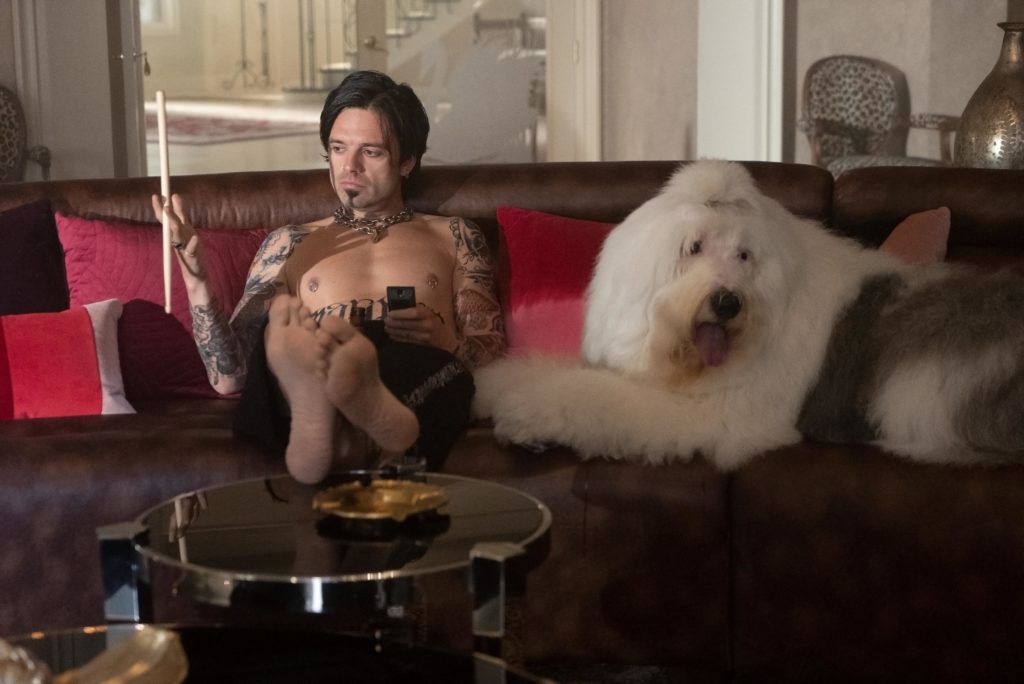
What would you say Fresh is about?
Fresh is a story that, like people, appears to be one way and then turns out to be something else. It starts off like a rom-com and it’s about two people connecting and simply trying to get to know each other. Then it’s about what happens once they get to really know each other.
I guess this is an extreme take on that particular fact, but it is still timely and relatable for many reasons — one of them being that we often walk into relationships, walk into dates with preconceived ideas and projections that we throw on the other person. We look for evidence in the other person to make us feel a certain way or to, in a way, justify certain ideas or narratives we might have had since we were kids or movies or how we’ve seen our parents fall in love or what we think is romantic. We often look for those things in the other person right away without actually listening or looking at who they are.
This movie essentially is about us paying a little more attention to our own GPS compass system, if you will. When you walk into something and you’re about to put your heart on the line, maybe you should know who you give it to.
As a TV reporter, I feel legally obligated to tell you how much I love your shows Kings and Political Animals. They’re still beloved among my fellow TV critics.
I’m just happy that you saw them or that you remember them. I think those shows were so ahead of their time when they came out. Sometimes I wonder if, had Kings come out now and there were streamers, maybe we would’ve had more seasons.
So, we know the folks over at Marvel have you keep everything close to the vest about any upcoming projects in the MCU. But, come on, between us, what does your Marvel future look like?
It depends.
This interview has been edited and condensed for clarity.
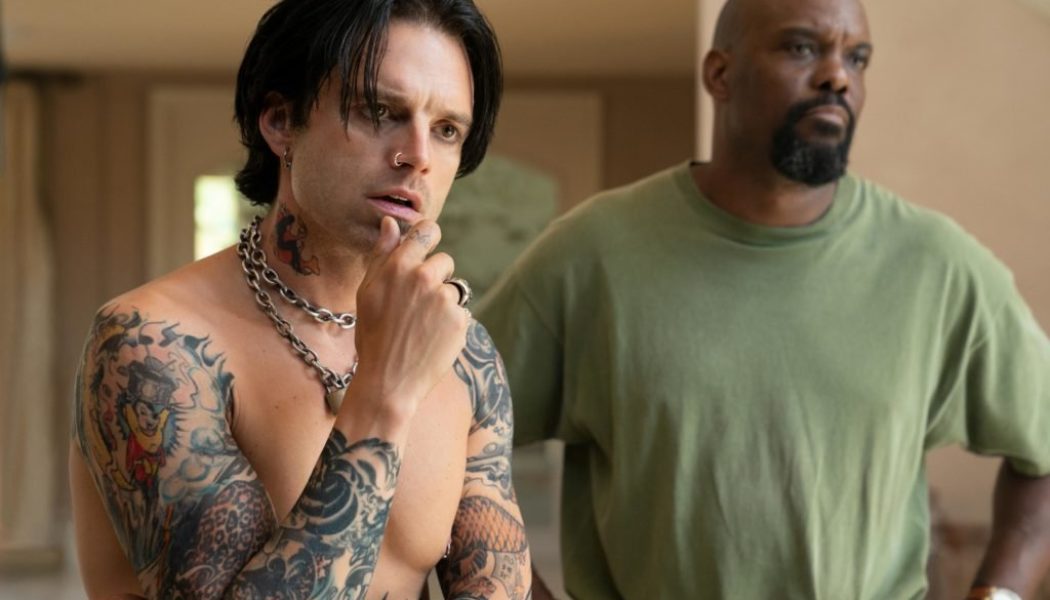

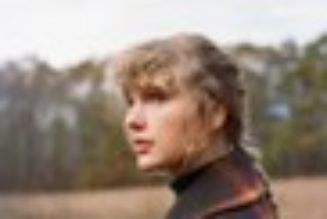
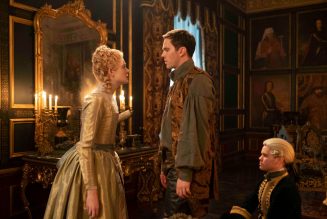
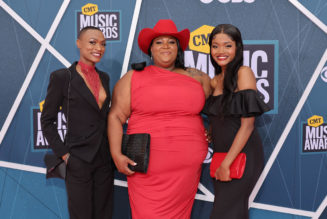
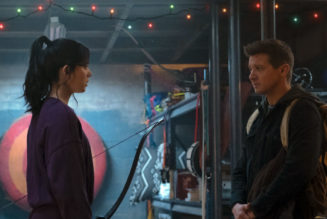

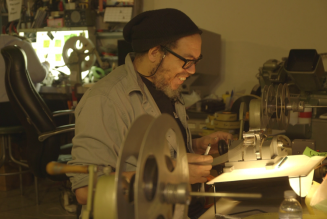
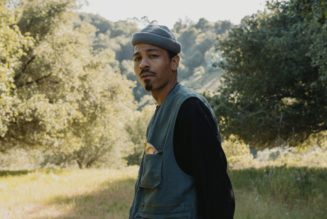

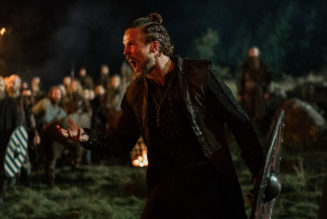
Tagged: Culture, Hulu, interview, INTERVIEWS, motley crue, Sebastian Stan